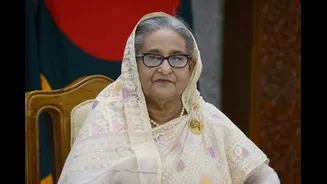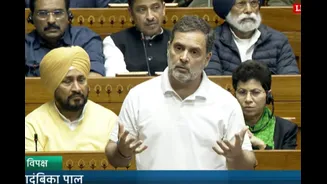As Bangladesh formally seeks the extradition of its ousted Prime Minister Sheikh Hasina, who has been sentenced to death by the International Crimes Tribunal (ICT), questions are mounting over whether
India can legally deny the request under existing treaties and Indian law.
India on Monday stated that the matter is “purely legal and judicial”, requiring formal engagement between the two governments.
“This is a judicial and legal process. It requires engagement and consultations between the two governments. We are examining this issue and we look forward to working with the authorities in Bangladesh,” the foreign secretary said.
Hasina and her former home minister were convicted by the ICT for alleged involvement in suppressing the 2024 protests.
The verdict has triggered a sweeping security clampdown in Dhaka, with the army, police and paramilitary forces deployed across the country.
What Experts Say
Legal experts note that while extradition treaties are generally honoured in good faith and in the interest of justice, both Indian law and the bilateral treaty give New Delhi significant discretion, especially if the request appears politically motivated or unjust.
What The Indian Extradition Act Allows
Under India’s Extradition Act, 1962, the Centre has explicit powers to deny extradition, stay proceedings, or discharge the person sought, depending on the circumstances.
Section 29 of the mentioned Act clarifies when India can reject an extradition request.
The Indian government can refuse extradition if:
- the request appears trivial or not made in good faith
- the request is politically motivated
- the extradition is not in the interest of justice
The law also empowers the Centre to stay proceedings “at any time”, cancel warrants, or discharge the individual sought.
Section 31: When Extradition Is Prohibited
A fugitive cannot be extradited if:
- The charge is political in nature or the accused proves the request was made to try/punish them for a political offence.
- The prosecution is barred by limitation under the requesting state’s laws.
The treaty does not guarantee protection from prosecution for unrelated offences
Section 31(c) bars extradition unless the treaty ensures the person will be tried only for:
- the extradition offence,
- any lesser offence arising from the same facts, or
- another offence for which India gives explicit consent.
What the India–Bangladesh Extradition Treaty Says
Article 6: The Political Offence Bar
Extradition may be refused if the offence is political. However, the treaty clarifies that serious crimes, including murder, terrorism, explosions, firearms violations, kidnapping, grievous assault, and offences under multilateral anti-crime treaties, cannot be classified as political.
This clause will be central to any evaluation of Bangladesh’s request.
Article 7: India Can Prosecute Instead
India may refuse extradition if it wishes to prosecute the individual itself for the alleged offence.
If prosecution is not pursued domestically, the extradition request must be reconsidered.
Article 8: Accused May Prove Extradition Is ‘Unjust or Oppressive’
Extradition must be refused if:
- the offence is trivial
- too much time has elapsed
- the accusation lacks good faith
- the offence is purely military in nature
- the person has been convicted earlier but was not sentenced
Article 21: No Scope for UN or ICJ Intervention
The treaty’s Article 21 states:
- either country can terminate the treaty with six months’ notice
- the UN cannot enforce or intervene in a bilateral treaty
- ICJ intervention is impossible without consent from both states
This means any decision, extradition or refusal, remains strictly bilateral.
Where the Process Stands
With Hasina convicted and Bangladesh initiating extradition procedures, India is now examining the request through provisions of the Extradition Act, the bilateral treaty, and possible claims of political motivation, due process concerns, or unjust prosecution.
The Foreign Secretary’s remark indicates that consultations will continue before India decides whether the request meets legal thresholds, or falls under grounds for refusal.






















